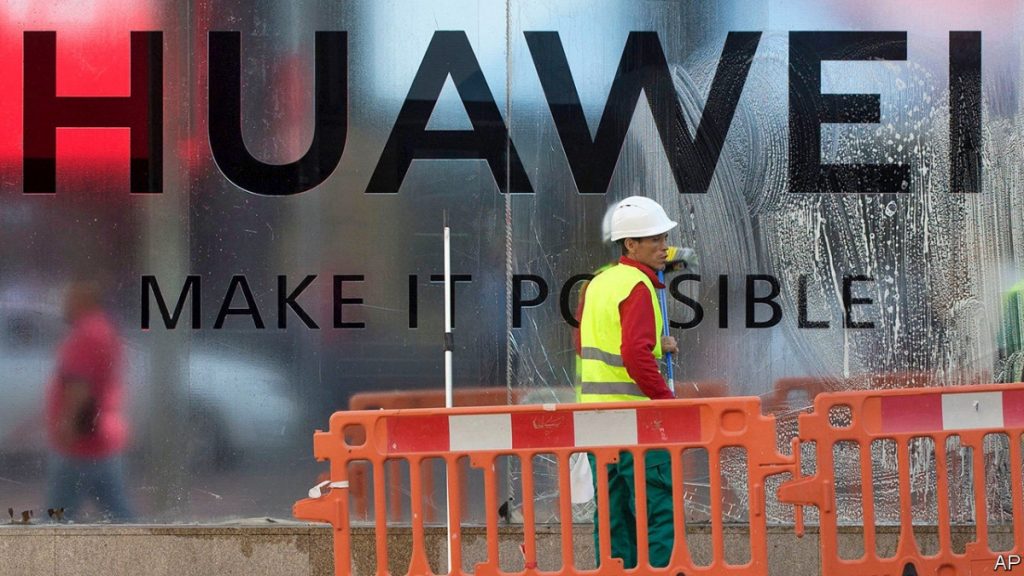From September 15th the Chinese telecoms giant will no longer have the ability to purchase vital semiconductors
H HUAWEI IS ON the ropes. From midnight on September 14th, the Chinese innovation giant will be cut off from essential materials of semiconductors. Without chips, it can not make the smartphones or mobile-network equipment on which its organization depends. America’s latest rules, finalized on August 17th, prohibit business worldwide from offering chips to Huawei if they have been made with the American chipmaking set. American semiconductor companies, for which Huawei has been a profitable client, have implored their federal government to extend the due date, as have their market bodies. A complete reprieve looks unlikely.
Huawei now looks most likely to follow one of 3 courses. The first involves Washington giving licenses to providers so that they can sell chips to the company in a restricted style. This would let Huawei stay in the organization– just about. MediaTek, a Taiwanese chipmaker that is among its primary providers, has petitioned America’s Department of Commerce ( D o C) for such an authorization. To keep Huawei’s edge blunt, suppliers keen to produce chips created by its in-house semiconductor unit, HiSilicon, are unlikely to be released such dispensation.
Even a debilitated Huawei may not please America. The D o C‘s default setting is to deny authorizations. That would require the Chinese firm to take more desperate action, such as making its own chips utilizing older technology that could be sourced from supply chains that do not consist of American companies. Pierre Ferragu of New Street Research study, a telecoms-and-technology research firm, anticipates Huawei to do this within 12 months.
This path has actually simply become rockier. On September 4th Reuters reported that America’s Department of Defence has proposed putting Semiconductor Production International Corporation ( SMIC), China’s leading chipmaker, on the very same blacklist as Huawei. The Pentagon declares that SMIC works with China’s armed forces, and so poses a threat to national security. A blacklisting would destroy SMIC‘s company, which relies on American machine tools. Its share price fell by almost a quarter on the news. SMIC denies having military ties and said it remains in “complete shock”. The danger of such action may dissuade SMIC from coordinating with HiSilicon, as Huawei might have hoped.
This leaves the third scenario. Huawei might fail, or be required to sell off bits of its service. This would not take place instantly: at the end of 2019, it had cash reserves of 371 bn yuan ($53 bn), enough to cover operating expenses for a year and a half. If push comes to push, it might offload HiSilicon. Huawei’s chip-design arm is one of the most innovative such outfits worldwide. According to IC Insights, a company of analysts, HiSilicon burglarized the international top-ten design business by earnings in the very first half of 2020, the first Chinese firm to do so. Since it will no longer be able to develop chips for its owner after September 14th, HiSilicon could beneficially focus on doing so for 3rd parties in China. That would create a new revenue stream for Huawei. If instead Huawei were forced to shut HiSilicon, its laid-off engineers would be grabbed by chip-design teams at other Chinese technology giants like Alibaba, Tencent, and ByteDance. Or they could start new design firms of their own; lots of are stated to be slipping out pre-emptively.
Each situation concerns companies like Qualcomm. The huge American chip-designer lists Chinese competition as a risk in its yearly filings. Last year Chinese sales made up $116 bn out of Qualcomm’s $243 bn in income. A HiSilicon liberated from Huawei would threaten those sales.
Huawei is placing on a brave face. It says it will invest over $20 bn on research and advancement this year, $5.8 bn more than in 2019 and about as much as Amazon, a company with double its sales. It wants to get brand-new income streams less susceptible to American attacks. These are not likely to let up even if Joe Biden becomes president next year. As Uncle Sam tightens up the grip, it risks squeezing Chinese innovation into a type that it no longer controls. Huawei intends to hold on till then. ■
This short article appeared in the business section of the print edition under the heading “Innovative damage”
